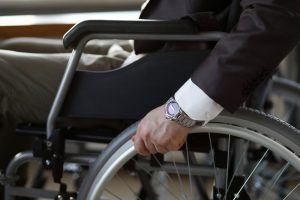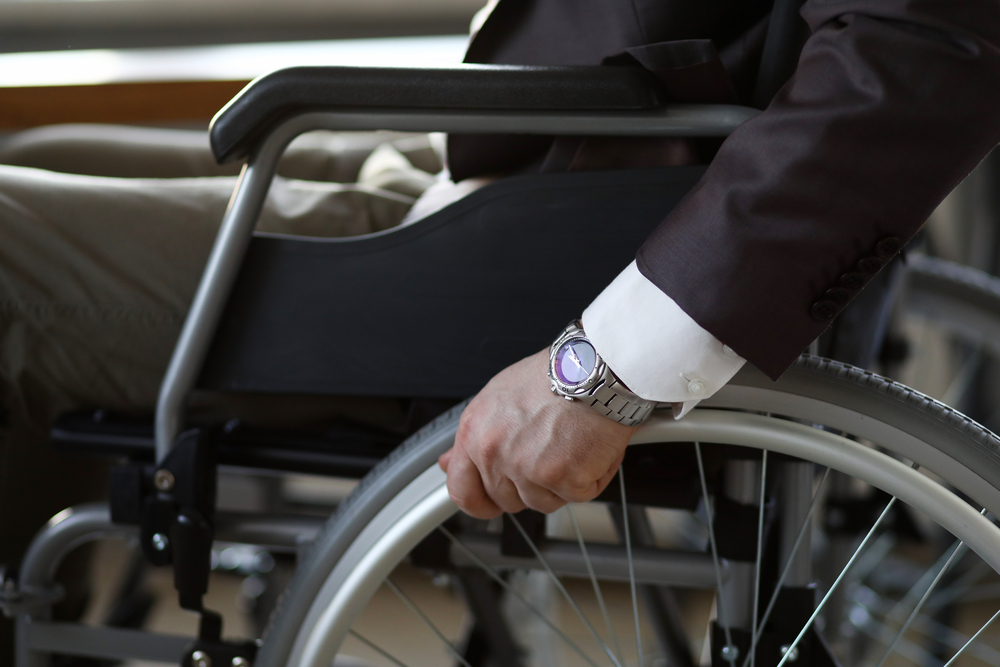Discrimination by an employer or a potential employer because of a disability is prevalent across the country, even though it is illegal.
When dealing with matters of employer discrimination, it is important to take on the issue at the state level, because federal protections for employees’ rights in the workplace are not as strong as state protections in New Jersey. In other states, such as New York, where state protections are not as strong, plaintiffs look to federal regulations to fight their employment discrimination claims in court.
What are state laws applying to discrimination policy?

What are federal laws regarding discrimination?
The Americans with Disabilities Act Amendments Act (ADAAA) federally prohibits discrimination based on disability for companies with 15 or more employees. If a company is charged with discrimination based on disability, according to the ADAAA, the employee can seek damages equal to those available under Title VII of the Civil Rights Act of 1964, its 1977 Revised Statutes (42 U.S.C. 1981), and the Americans with Disabilities Act of 1990, which provide for compensatory damages in the case of intentional violations of Title VII. Such compensatory damages could include back pay, front pay, and other compensatory and punitive damages. However, while there are a broad range of protections for employees under federal law, a precedent has been set that federal court judges often side with businesses and corporations as it regards employee discrimination, and an individual charge brought to the federal court for such an offense may be dropped.
What is legally considered a disability?
According to the original Americans with Disabilities Act, a disability is defined as
- a physical or mental impairment greatly limiting capacities or major life activities
- having the record of such an impairment, or
- being regarded as having such an impairment.
Over the decades, the legal jargon regarding what constitutes a disability has not changed much, though its interpretation in court has greatly shifted. Due to this shift, the courts see disability under a much broader spectrum, as well as its interpretations of the major life activities and bodily functions that are limited by disability, as noted by the Equal Employment Opportunity Commission (EEOC). The EEOC reiterates that ‘major life activities’ include, but are not limited to, the capacities to
- Care for oneself
- See
Hear
- Eat without the support of tubes
- Sleep a reasonable amount
- Perform manual tasks
- Stand up
- Walk with or without support
- Lift light objects
- Bend the joints of the body
- Speak clearly
- Breathe without the support of a device
Bodily functions whose absence of function would be considered disability include
Immune system function
- Digestive function, including the bowels and urinary function
- Brain function
- Nervous system function, which could include post-traumatic stress that affects the proper functioning of the nervous system
- Circulatory system function, as well as all heart-related issue
- Endocrine system function, including the balanced operation of the hormones
- Reproductive function
How to file a complaint with the New Jersey Courts
A complaint of disability discrimination in the workplace will need to be filed with the New Jersey Division on Civil Rights (DCR). Upon filing a complaint, the DCR will investigate the complaint and determine whether there is or is not probable cause to support your allegations. If the Director of the DCR finds that the investigative process affirms probable cause for a claim, your case will proceed to the Office of Administrative Law, whose judge will issue a finding. The Director of the DCR will review the Administrative Law Office’s review and either adopt its ruling or overturn it. During this process, it is imperative that you have the legal support of an experienced attorney.
Disability Discrimination Attorneys Serving Clients in Mercer, Middlesex, Bucks and Philadelphia Counties
At Cohen & Riechelson, our team is experienced in ensuring the rights of our clients in Trenton office, Princeton, Lawrence, Hamilton, New Brunswick, and across Mercer County in all matters of disability discrimination in the workplace.
To schedule a consultation with an experienced member of our firm today regarding your case, please call us at (609) 528-2596 or go online to schedule a free, no-risk consultation with a personal injury lawyer.


 Hear
Hear Immune system function
Immune system function